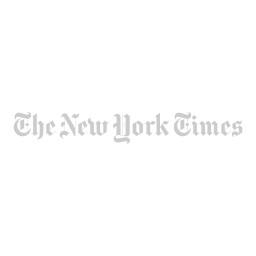The Splendid Five asks the same five questions of a different wedding or creative professional each Friday.
Today we’re meeting Charlotte Hale, who dreamt up and created the ‘getting ready’ category of bridal and bridesmaid fashion apparel when she founded Plum Pretty Sugar in 2009.
Name: Charlotte Hale
Company Name: Plum Pretty Sugar
Wedding Industry Segment: Bridal Fashion
Years in Industry: 9
Location: Southern California
Website: plumprettysugar.com
Instagram: @plumprettysugar
New release available at BHLDN.
1. How did you get started in the wedding industry?
When I created Plum Pretty Sugar almost a decade ago, in 2009, I originally concepted it as a lifestyle brand that focused on sleepwear, home décor, and eventually apparel. I knew from a previous business I had that robes would be integral to the sleepwear portion of the company. Keeping in mind that bridal ‘getting ready’ didn’t exist – there weren’t any bridesmaid robes, bridesmaids pajamas, bridal robes – I strategically set out to determine product use categories wherein women could potentially wear robes. I dug in and came out with a new idea: brides the morning of their wedding and bridesmaids!
The marketer in me intrinsically knew I could create a new usage while also expanding the wedding festivities into a morning prep period. I believed I could create and maximize opportunities for friendship, family, and bonding that would be well-received by brides. And so started what is now the bridal getting ready category within the wedding industry.
Photo by Jon Cu
2. How has the industry changed since you started?
The wedding and bridal industry has changed drastically since Plum Pretty Sugar began in 2009. Ten years ago the industry centered around bridal magazines, bridal books, and less than ten blogs. Social media was limited to Facebook which wasn’t used for business at the time and it pre-dated the rise of influencer. 2018 is a different landscape entirely.
The bridal client is also extremely different. She is primarily a millennial and her desires and expectations are disparate to the Gen Xer that proceeded her. She grew up in a socially networked world and seeks and discovers information about all things, including her wedding, differently.
She also consumes it differently. Her wedding is meant very often for the public eye and the connections she’s fostered throughout social media and she therefore seeks products and experiences for reasons we couldn’t have imagined a decade ago. Therein we see both the product and experiential trends that feed this consumption.
It’s been interesting to be a part of it. Often as a CEO I don’t realize it’s changing until we look back. We’re so accustomed to change at Plum Pretty Sugar, it is nearly routine. And that’s what makes it exciting.
Photo by Elizabeth Messina
3. What was the biggest lesson you learned early on in your business?
There have been so many lessons but the one that still stands out, mainly because I’m still working on it, is managing criticism, dis-believers, trolls, and unkind people in general. When you start a business, and develop a category especially, there are many naysayers who don’t understand and are unable or unwilling to see the vision, or are, frankly, just mean. I’ve learned to surround myself with a team that protects me, which in turn allows me to move the brand vision and the company forward without being halted by ill will. With that comes a knowing of clearly understanding my strengths, my weaknesses, and pushes me to define and right them within the company directive.
The Plum Pretty Sugar office. Photo by Taylor Cole
4. What is the biggest lesson you've learned in the past few years?
I have learned to trust. I’ve learned to allow others in and to let them spread their wings and their voice and really develop their skill set within Plum Pretty Sugar. I’ve learned to look at the business through their lens and in doing so have it has both challenged me and the business to become stronger in perhaps ways I hadn’t initially thought or predicted. I’ve also learned that I as a human, a business owner, a wife, and a mom . . . I can only do so many things. That I do have a maximum regardless of the ongoing lists, ideas, and opportunities in my mind’s eye and on paper. I’ve learned to prioritize and to delegate and to let others soar with them.
Photo by Jose Villa
5. What one piece of advice would you give to another entrepreneur on sticking it out in a competitive industry?
I think all industries these days are competitive. It’s a normal part of doing business. The idea, the thinking, and the stress around “competitive” I don’t believe will get you anywhere. I recommend staying true to your vision – but first having a vision . . . an authentic, non copycat vision – and following it through. Make thoughtful decisions, listen to your gut, don’t get side tracked. Be honest with yourself about what you’re seeking to achieve and what’s working and what’s not. What works for you may be entirely different than someone else. Stay on course. Focus and be kind.





















